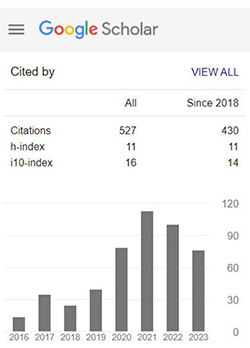Ethical Issues in Cyborgization: The Case of Brain-Computer Interface
DOI:
https://doi.org/10.26593/mel.v26i2.880.141-159Abstrak
A cyborg, also known as a cybernetic organism, is a being with both biological and artificial values. Real (as opposed to fictional) cyborgs are more frequently people who use cybernetic technology, like the Brain-Computer Interface, to repair or overcome the physical and mental constraints of their bodies. The Brain-Computer Interface (BCI), sometimes called divert neural interface or Brain-Machine Interface (BMI) is a divert communication pathway between a brain and an external device which aims at assisting, augmenting or repairing human cognitive or sensory-motor functions. It consists of systems that transform biological signals recorded from neural tissue into electronic signals that control a computer interface. Once such a control is attained, it can then be translated into a system that can control a machine or a physical device or can even stimulate or activate biological tissues. Its principal goal is to enable people with neural pathways that have been damaged by amputation, trauma or disease to function and control their environment either through the reanimation of paralyzed limbs or control of robotic devices. A typical BCI/BMI consists of various components which include the acquisition, processing and discharge of signals. All BCIs use either the invasive or non-invasive methods. In isolated but real cases, chips which have been implanted into human brain have produced signals of high enough quality to stimulate movement. Also, retinal implants have restored vision to people suffering from retinitis pigmentosa and vision loss due to aging. However, there are strong ethical concerns that the very idea of the interface between humans and machines can potentially alter what it takes to be human.
KeyWords:
*Brain Computer Interface, *cyborg, *human brain, *ethical concern, *biological capacities, *enhancement, *alteration, *the naturals, *the enhanced, *'normal functioning', *colateral implications, *personal identity, *autonomy
##submission.downloads##
Diterbitkan
Terbitan
Bagian
Lisensi
Hak Cipta (c) 2010 Columbus Ogbujah, Charles Ufomadu

Artikel ini berlisensi Creative Commons Attribution-NonCommercial 4.0 International License.
MELINTAS applies the Creative Commons Attribution (CC BY NC) license to articles and other works we publish. If you submit your paper for publication by MELINTAS, you agree to have the CC BY NC license applied to your work.





